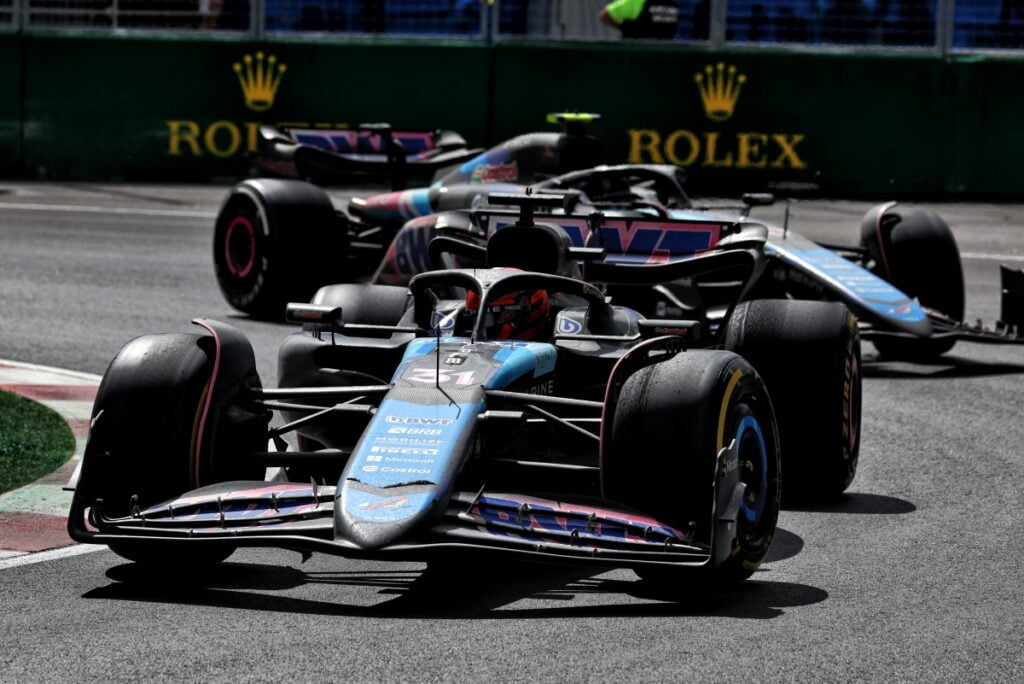Why Alpine May Ditch Renault Engines: The Shocking Truth You Need to Know

In a surprising turn of events, Alpine's Formula 1 outfit might abandon its Renault power unit operation at Viry-Chatillon. Reports suggest that the team is considering a customer engine deal for the 2026 season, a significant shift for a team deeply intertwined with Renault's legacy.
Autosport has revealed that Alpine is mulling over the possibility of shutting down its F1 power unit project. Instead of developing a new engine for the 2026 regulations, they might opt to lease one from a rival OEM.
Renault Group CEO, Luca de Meo, has been vocal about this shift. Despite previously asserting, “We will not sell even a part of this thing,” De Meo acknowledges the glaring deficiencies of the F1 power units from Viry since 2014's hybrid era debut.
The Struggles of Viry's Power Units
“When we began the hybrid era [in 2014], our engine didn’t perform,” De Meo stated. “We had been world champions with Red Bull, but with hybrid, things went wrong. Even the engine we developed in 2021 had a 0.2s to 0.5s disadvantage every lap.”
The underwhelming performance from Viry's power units has cost them any potential customer base, leaving only the works Alpine team powered by Renault. According to Joe Saward, Alpine's yearly spending on power unit development is a mere $40 million, which is less than half of the $95 million budget cap set from 2021 to 2025. As the cap is set to rise to $130 million in tune with new regulations, Alpine faces mounting pressure to ramp up investment or seek alternative solutions.
The Economics of Engine Leasing
Considering that engine leases in F1 are capped at $15 million, reports suggest that Alpine Team Principal has begun preliminary discussions with rival manufacturers to secure a future engine deal. But who could Alpine partner with?
 Esteban Ocon (FRA) Alpine F1 Team A524 during the 2024 F1 season.">
Esteban Ocon (FRA) Alpine F1 Team A524 during the 2024 F1 season.">To avoid business conflicts with rival automotive manufacturers, Alpine could consider the budding Red Bull Powertrains operation. However, Red Bull's recent history with Renault—they opted for Honda engines after years of dissatisfaction—suggests this might not be a viable path. Red Bull is already stretched thin, supplying its own two teams.
Another contender could be Audi, but they too have their hands full, preparing for their 2026 debut with Sauber. Mercedes appears to be the front-runner, especially since they will lose a customer when Aston Martin transitions to Honda power in 2026. Mercedes is no stranger to 'Team Enstone.' Back in 2015, when the team was known as Lotus, they ran Mercedes engines and finished sixth in the Constructors' standings, a substantial leap from their performance with Renault in 2014.
Possible Outcomes
If Alpine shuts down its Viry F1 power unit operation and cannot secure a customer deal, F1 regulations stipulate that another OEM must step in to supply the team. In this scenario, Honda is speculated to be the likely candidate.
This latest twist in Alpine's F1 journey—characterized by a lackluster car, frequent senior staff changes, and unsettled drivers—paints a picture of a works team struggling to find its footing. The decision to switch from Renault engines to a customer's power unit could signal a pivotal moment in the team's history, potentially setting the stage for a resurgence or further complications.